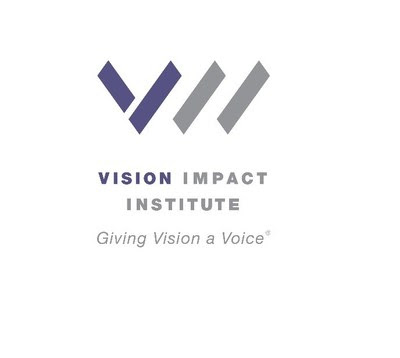This week’s feature shows some of the ways that contributions to WHO are helping save the lives of children, from those caught in an historic drought in the Horn of Africa to those fleeing war in Ukraine.
Read also about the battle to end pediatric HIV, malaria and noma, stop polio, prevent drowning, and promote breastfeeding and vaccination.
Protect and promote breastfeeding, leaders urge
Breastfeeding provides a ready, nutritious food source for babies, and governments should use their resources to support it, WHO and UNICEF urged during World Breastfeeding Week in August.
The two organizations called upon countries and other stakeholders to make policies that provide mothers with the time, space and support they need to breastfeed.
WHO points out the special resource breastfeeding provides in emergency situations, where food might be more difficult to obtain.
Read about World Breastfeeding Week activities in: Malawi, Somalia, Tajikistan
Ramping up the polio response in Africa
Mass-vaccination campaigns are under way in southern Africa after a case of wild poliovirus was detected earlier this year in Malawi.
“This is a dangerous disease with no cure, but full vaccination can prevent paralysis,” said Dr Modjirom Ndoutabe, Polio Programme Coordinator at WHO’s Regional Office for Africa. “We are supporting these five countries (Malawi, Mozambique, Tanzania, Zambia and Zimbabwe) to deliver quality and effective vaccination campaigns, which will safeguard children and stamp out the virus.”
WHO’s International Health Regulations Emergency Committee agreed at a June meeting that the risk of international spread of poliovirus remains a public health emergency of international concern; a young adult was diagnosed with polio recently in the United States (the state of New York), and hospitalized with paralysis.
Read: Ending polio in Somalia and Mopping up polio in Zambia
WHO calls on global community to “do one thing” to stop drowning
For World Drowning Prevention Day (25 July), WHO recommended six ways to prevent drowning: building barriers around water, training rescuers, teaching swimming and water safety at school, providing day care, enforcing boating, shipping and ferry regulations, and doing better at managing flood risks.
Free vaccinations for Ukrainian refugees in Moldova
Since the first day of the war, the Republic of Moldova has been providing free health and immunization services to Ukrainian refugees. As of mid-July, more than 1000 doses of routine vaccines had been administered to refugee children. The shots protect against measles, mumps, rubella and other childhood illnesses.
Also read about Germany’s US$ 4.6 million contribution for childhood and COVID-19 vaccinations in Somalia.
Alliance launched to end AIDS in children by 2030
The Global Alliance for Ending AIDS in Children by 2030 was introduced this month at the International AIDS Conference in Montreal to reignite the fight against HIV in children.
“The wide gap in treatment coverage between children and adults is an outrage,” UNAIDS Executive Director Winnie Byanyima said. “Through this alliance, we will channel that outrage into action. By bringing together new, improved medicines, new political commitment, and the determined activism of communities, we can be the generation who end AIDS in children. We can win this – but we can only win together.”
The Alliance, made up of health organizations, civil society and Member States, has introduced a four-pronged plan of treatment, prevention, testing and protecting human rights to push toward its 2030 goal.
In Somalia: “Our lives have changed thanks to the water we now have in our camp.”
WHO’s recent repair of boreholes in Somalia has brought access to clean drinking water to nearly 20 000 people. Clean water means fewer waterborne diseases like cholera and diarrhoea, healthier populations, and better sanitation.
The United Nations General Assembly has recognized access to water and sanitation as a human right.
Read about WHO’s funding appeal for the humanitarian crisis in the Greater Horn of Africa.
Historic funding to expand roll-out of malaria vaccine in Africa
The world’s first mass vaccination against malaria was brought a step closer in July as Gavi, the Vaccine Alliance opened a process for countries to apply for funding to roll out the new vaccine.
Nearly US$ 160 million in international support will fund the effort.
WHO recommended the new vaccine in 2021 after a two-year pilot programme showed it could save tens of thousands of children every year when used in conjunction with mainstay malaria-fighting tools such as insecticide-treated bed nets.
Malaria is a leading cause of childhood illness and death in sub-Saharan Africa, killing more than 260 000 children under the age of five every year.
Nigeria seeks to eliminate a severe and often-lethal mouth disease
WHO and other organizations are helping Nigeria develop its capacity to fight back against noma, a disfiguring and often fatal mouth and face infection whose sufferers tend to be malnourished children living in extreme poverty.
Construction on a 100-bed hospital began in May in Abuja, and hundreds of health workers are receiving training to tackle noma. In July, OpenWHO launched an online noma course for health workers.
“This disease is still not very well known in our communities, including among health care workers who often mistake it for cancer or other illnesses. But I am optimistic that this is beginning to change,” said Dr Shafiu Isah, chief Medical Director at the Sokoto Noma Children’s Hospital in northwest Nigeria. “With the help of other stakeholders, I think we are getting there.”
Support for the activities comes from the German non-profit Hilfsaktion Noma e.V., the Noma Aid Nigeria Initiative, Médecins Sans Frontières and WHO.
Source: World Health Organization


